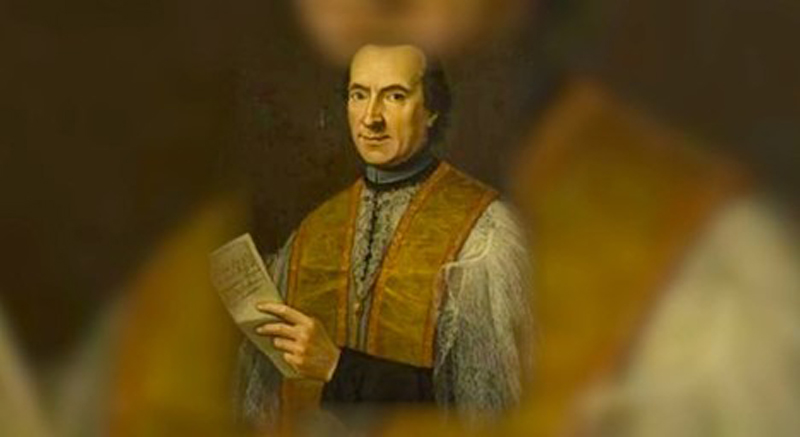(1698-1764)
John Baptist de Rossi was born in Voltaggio, Italy, to poor, but religious parents. They were responsible for setting him on the path to a fine education.
A pair of local priests also took upon themselves his early education and faith formation as a part of their apostolate, taking him under their spiritual care. At 10 years old, a wealthy couple of Genoa noticed his intellectual gifts and took him in as a page, after receiving his father’s approval. John was taken to Genoa to attend school until 1711.
In that year John was called to Rome by his cousin, the canon of St. Mary in Cosmedin, Lorenzo de Rossi. Lorenzo suggested John complete his studies there at the Collegium Romanum under the guidance of the Jesuits. A model student he studied philosophy and theology under the Dominicans at the Dominican College of St. Thomas. At the same time John joined the Sodality of the Blessed Virgin and the Ristretto of the Twelve Apostles, whose members dedicated themselves to Christian prayer and service.
Like many passionate servants of Christ, John’s enthusiasm led him to overextend the limits of his physical self. His health was severely impacted and began to have fits of epilepsy. He struggled with these for the rest of his life. John wanted dearly to become a priest. Under normal circumstances, his epileptic fits would have excluded him from the priesthood. However, he was granted a special dispensation. After ordination as a deacon, he was ordained to the priesthood on March 8, 1721.
He refused any ecclesiastical benefits unless ordered to do so and devoted himself to serving Rome’s sick, homeless and prostitutes. He would visit the sick and poor in the hospitals by day, and by night he ministered to the street people. He reached out to assist homeless women and helped to found a hospice for them near St. Galla. He also aided prisoners and workers. Other priests were in awe of John’s holiness and manner of life. They saw that with only a few kind words he could turn people’s lives around.
John Baptist once said, “Ignorance is the leprosy of the soul. How many such lepers exist in the church here in Rome, where many people do not even know what is necessary for their salvation? It must be our business to try to cure this disease.” When John succeeded his uncle as the canon of St. Mary in Cosmedin he refused the house belonging with the title and used funds from selling the home toward his cause with the poor. His health however would continue to hound him and became afraid of entering the confessional because the possibility of having a seizure during the session. He became accustomed to sending the sinners he found to other priests.
Sent to a retreat, John regained his health and the local bishop pushed him to hear confessions. After reviewing his moral theology, John received the special faculty of hearing confessions in any of Rome’s churches. John became the “apostle of the abandoned,” and became known as a second Philip Neri, a hunter of souls. He preached five to six times a day in all kinds of places, including churches, hospitals, and prisons. He was also known for his strong devotion to St. Aloysius Gonzaga.
After a return of his ill health due to his exertions in September 1763, he celebrated Mass at Santa Maria in Cosmedin, telling those present that he would be dying soon. But God had other plans for him, and he once again recovered. He went on to celebrate several more Masses before succumbing and going onto his eternal rest. John Baptist de Rossi was beatified on May 13, 1860 by Pope Pius IX and canonized on December 8, 1881 by Pope Leo XIII.
Adapted by A.J. Valentini from: Online, C. (n.d.). St. John Baptist de Rossi – Saints & Angels. Catholic Online. Retrieved May 18, 2021, from https://www.catholic.org/saints/saint.php?saint_id=229
